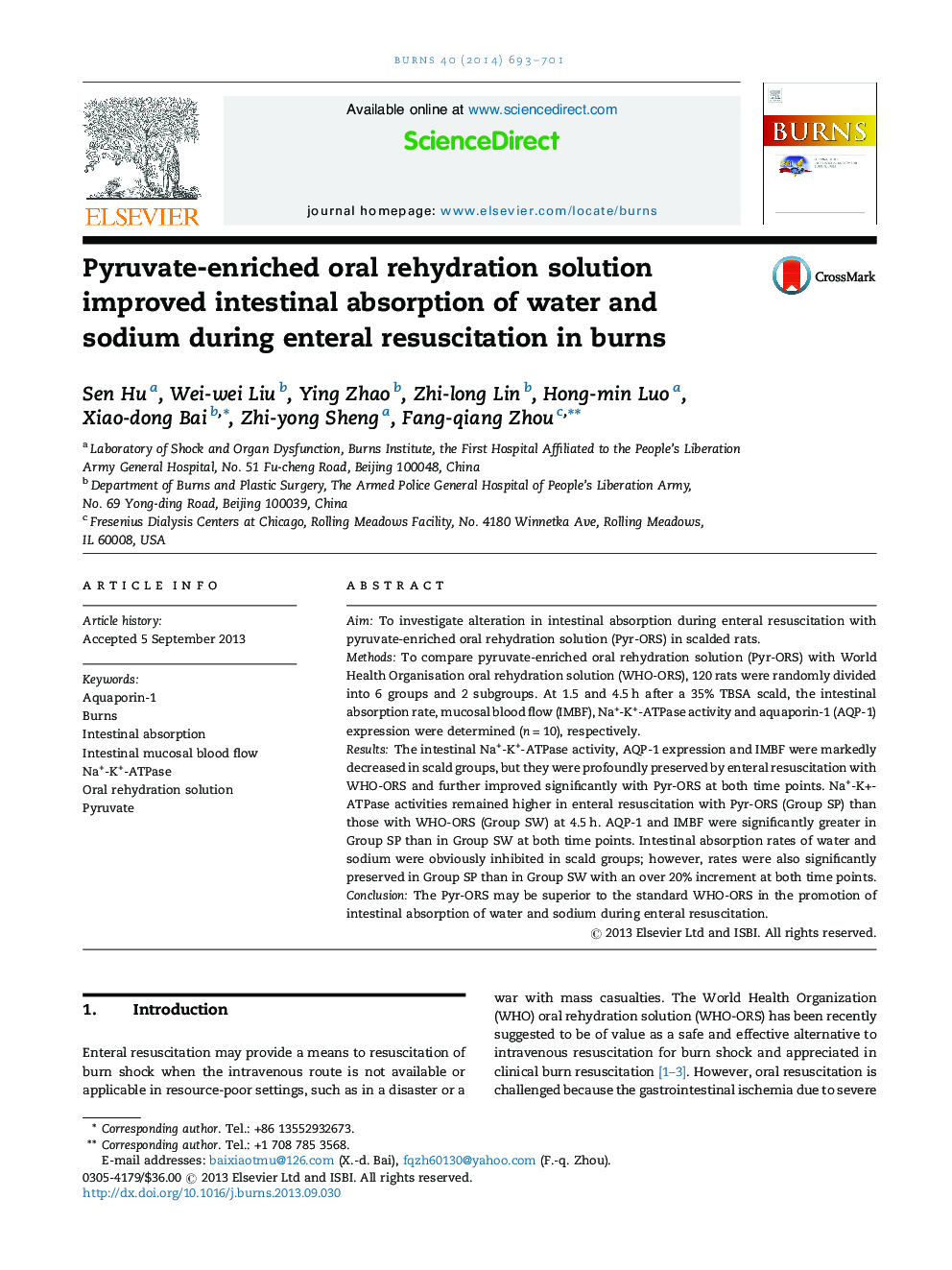| Article ID | Journal | Published Year | Pages | File Type |
|---|---|---|---|---|
| 3104496 | Burns | 2014 | 9 Pages |
AimTo investigate alteration in intestinal absorption during enteral resuscitation with pyruvate-enriched oral rehydration solution (Pyr-ORS) in scalded rats.MethodsTo compare pyruvate-enriched oral rehydration solution (Pyr-ORS) with World Health Organisation oral rehydration solution (WHO-ORS), 120 rats were randomly divided into 6 groups and 2 subgroups. At 1.5 and 4.5 h after a 35% TBSA scald, the intestinal absorption rate, mucosal blood flow (IMBF), Na+-K+-ATPase activity and aquaporin-1 (AQP-1) expression were determined (n = 10), respectively.ResultsThe intestinal Na+-K+-ATPase activity, AQP-1 expression and IMBF were markedly decreased in scald groups, but they were profoundly preserved by enteral resuscitation with WHO-ORS and further improved significantly with Pyr-ORS at both time points. Na+-K+-ATPase activities remained higher in enteral resuscitation with Pyr-ORS (Group SP) than those with WHO-ORS (Group SW) at 4.5 h. AQP-1 and IMBF were significantly greater in Group SP than in Group SW at both time points. Intestinal absorption rates of water and sodium were obviously inhibited in scald groups; however, rates were also significantly preserved in Group SP than in Group SW with an over 20% increment at both time points.ConclusionThe Pyr-ORS may be superior to the standard WHO-ORS in the promotion of intestinal absorption of water and sodium during enteral resuscitation.
